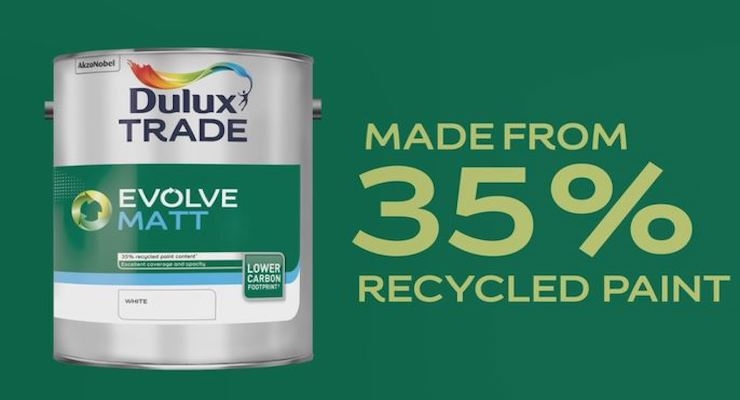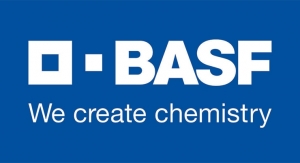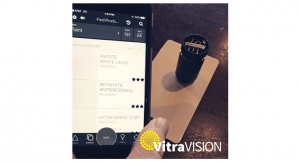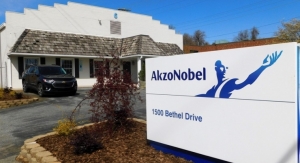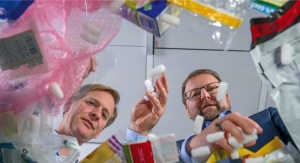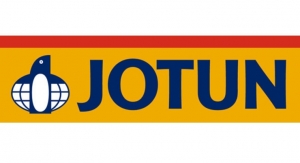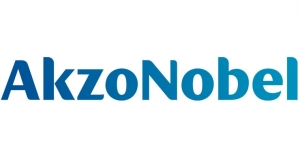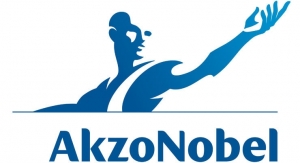10.01.19
AkzoNobel has become the first major manufacturer to launch recycled paint thanks to a ground-breaking partnership in the UK with resource management experts Veolia.
Developed by the company’s Dulux Trade brand, the Evolve matte emulsion is made from the waste of other people’s paint tins in a bid to reduce the amount that goes to landfill.
Once any leftover white paint has been reclaimed, it is sorted, filtered and refined by Veolia. It’s then re-engineered with new paint by AkzoNobel and tested extensively to ensure that every tin meets the high standards expected from Dulux Trade. The final product contains 35 percent recycled paint.
“We’re always looking for new ways to drive sustainable innovation, cut down on waste and create a circular economy for paint – while offering our customers fresh solutions that don’t compromise on quality,” AkzoNobel’s Chief Operating Officer Ruud Joosten said. “By introducing Evolve, we will reduce the carbon footprint of our Dulux Trade products, and help our customers reach their own sustainability goals.”
“Sustainability is at the heart of our business. That’s why we focus on developing products and technologies with the biggest positive impact," said Rinske van Heiningen, AkzoNobel’s director of sustainability. "We’re also well aware that people expect more than just a product from a brand, so we’re always striving to deliver the most sustainable – and meaningful – solutions.”
Evolve was created after years of investment, hard work and commitment to improving the company’s sustainable offering. A particular achievement was reducing the carbon footprint of each liter of Evolve paint produced by more than 10 percent (compared with standard vinyl matte).
The product underwent rigorous testing by research and development experts and was blind tested by decorators and painting contractors. A number of small scale trials were also conducted.
“The launch of this new paint is just the latest step on a journey AkzoNobel is taking towards meeting its sustainability targets and helping to close the loop on paint waste," Joosten said. "It’s another example of how we’re setting the pace as the leader in sustainability in the paints and coatings industry.”
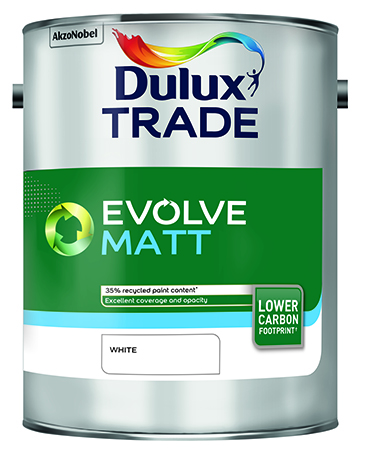
Developed by the company’s Dulux Trade brand, the Evolve matte emulsion is made from the waste of other people’s paint tins in a bid to reduce the amount that goes to landfill.
Once any leftover white paint has been reclaimed, it is sorted, filtered and refined by Veolia. It’s then re-engineered with new paint by AkzoNobel and tested extensively to ensure that every tin meets the high standards expected from Dulux Trade. The final product contains 35 percent recycled paint.
“We’re always looking for new ways to drive sustainable innovation, cut down on waste and create a circular economy for paint – while offering our customers fresh solutions that don’t compromise on quality,” AkzoNobel’s Chief Operating Officer Ruud Joosten said. “By introducing Evolve, we will reduce the carbon footprint of our Dulux Trade products, and help our customers reach their own sustainability goals.”
“Sustainability is at the heart of our business. That’s why we focus on developing products and technologies with the biggest positive impact," said Rinske van Heiningen, AkzoNobel’s director of sustainability. "We’re also well aware that people expect more than just a product from a brand, so we’re always striving to deliver the most sustainable – and meaningful – solutions.”
Evolve was created after years of investment, hard work and commitment to improving the company’s sustainable offering. A particular achievement was reducing the carbon footprint of each liter of Evolve paint produced by more than 10 percent (compared with standard vinyl matte).
The product underwent rigorous testing by research and development experts and was blind tested by decorators and painting contractors. A number of small scale trials were also conducted.
“The launch of this new paint is just the latest step on a journey AkzoNobel is taking towards meeting its sustainability targets and helping to close the loop on paint waste," Joosten said. "It’s another example of how we’re setting the pace as the leader in sustainability in the paints and coatings industry.”

